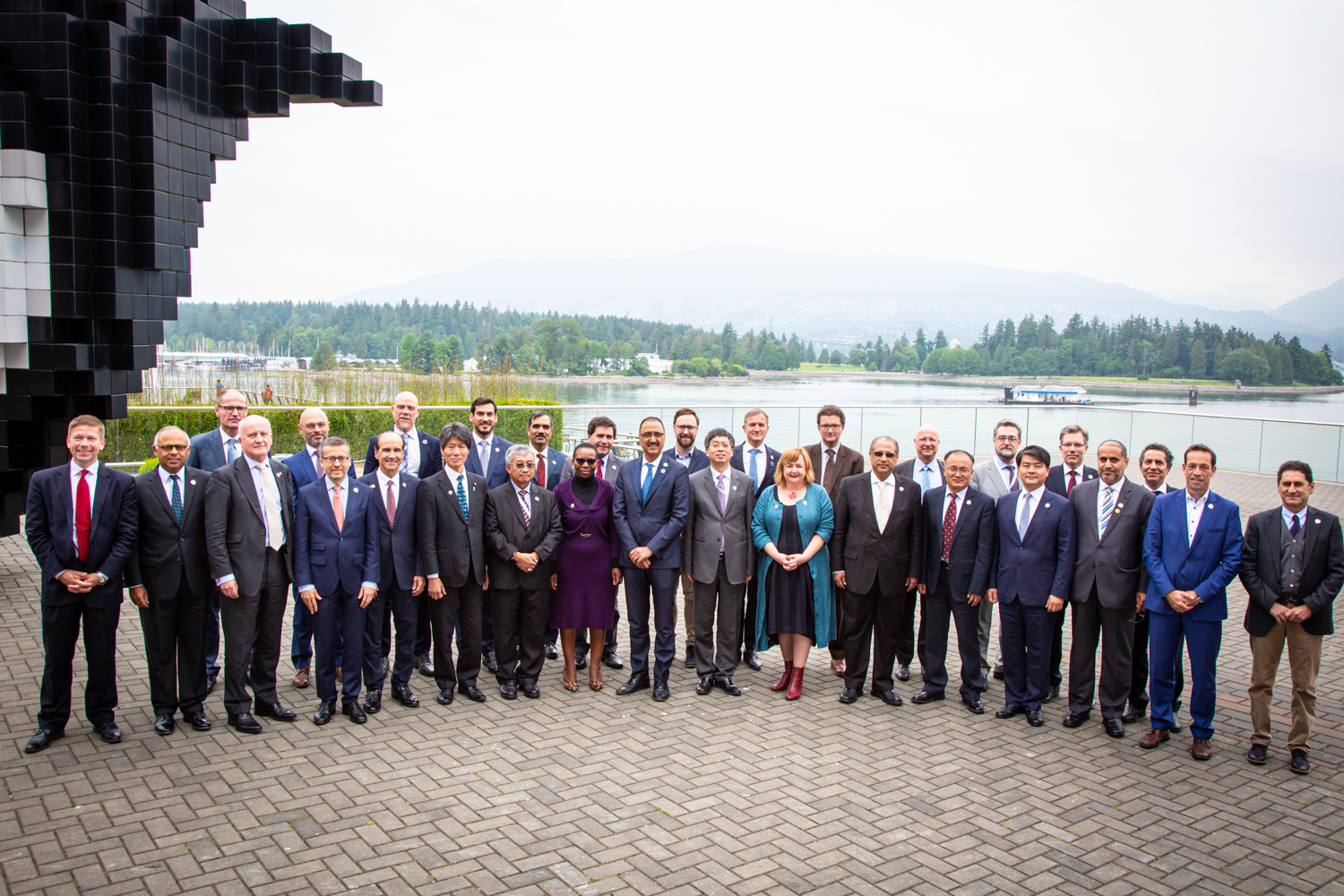10th Clean Energy Ministerial (CEM10)
Ministerial
29 May 2019
Vancouver

The Tenth Clean Energy Ministerial (CEM10) took up four universal, key themes central to advancing clean energy:
Clean Power, Smarter Use of Energy, Sustainable Clean Energy Financing, and Workforce and Communities.
Ministers called for greater ambition to advance the clean energy transitions, to recognise the value brought about by a diverse workforce, and to take action in the face of growing global energy demand and emissions despite a rise in renewable energy capacity.
The Clean Power/Electric Future session highlighted the need to transform power systems to make them modern, flexible and resilient, with a focus on system integration of energy supply and demand, renewables, flexibility and electrification. CEM Members noted the need to recognise a variety of national approaches to charting a course forward. CEM Members discussed renewable energy as an important source of electricity, regulatory frameworks and market design and frameworks to ramp-up investment in clean energy and associated infrastructure.
The Smarter Energy Use session called on CEM members to double-down on energy efficiency with a focus on products with the highest mitigation potential and hardest to abate sectors (such as heavy industry and heavy duty transport). Energy efficiency policies, processes and tools to accelerate adoption of new technologies and reduce overall energy demand were discussed through a lens of urban communities, with a focus on improving efficiency in buildings and transportation among others. CEM Members recognised the potential for energy efficiency to fast track the global clean energy transition, highlighted their work to advance global market transformation for energy efficient products (e.g. space conditioning, equipment and appliances), and discussed increased collaboration to share best practices and lessons. The need to mobilise private sector capital to accelerate energy efficiency across sectors and standardise approaches to smaller scale financial transactions were also discussed.
The Workforce and Communities: A just and inclusive transition session saw CEM Members highlight the importance of energy transition implications for workforces and communities, and share information to create economic opportunities. There was a shared understanding of the importance of job creation and opportunities for all, including youth education programmes and closing the gender gap by accelerating gender diversity and equality. The World Bank agreed to develop a compendium of best practices to capture experiences of CEM Members on this topic.
As part of its hosting legacy, Canada tabled gender principles for consideration by future CEM hosts, which were endorsed by Chile as incoming CEM11 host.
The Women in Clean Energy Breakfast celebrated the Equal by 30 campaign achieving over 100 signatories.
Launch of a new Hydrogen Initiative co-led by Canada, Japan, the European Commission, Netherlands, and the United States, will advance one of the most promising energy carriers of tomorrow.
Launch of a new nuclear campaign, co-led by Canada, United Kingdom and the United States, will promote highly flexible, next generation nuclear technologies.
Canada’s focus on people, including youth, gender, Indigenous, and workers resonated with countries; the first ever CEM/MI youth program brought global clean energy leaders together at the Youth Forum, empowering young people as change agents in the clean energy future. 70 youth delegates, from nearly all CEM Member countries, participated in the Youth Forum, which included an innovation jam, a policy hackathon, Ministerial debates and.
Two new workstreams were launched at the meeting:
